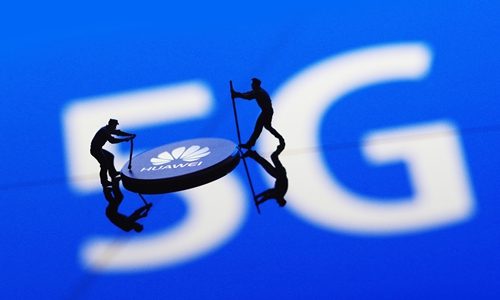Deutsche Telekom’s motive harms China-Germany ties

Photo: IC
German telecommunications company Deutsche Telekom will gradually phase out Huawei components from its core network as part of the routine replacement of equipment, Wirtschaftswoche, a German weekly business news magazine, reported on Wednesday. Chinese Ambassador to Germany Wu Ken said the same day that Deutsche Telekom's move would send a protectionist message.
Excluding Huawei from Germany's 5G network construction is groundless discrimination against Chinese companies. If Huawei really has technological and security issues, we may accept Deutsche Telekom's decision. But the fact is there has been no evidence to date that proves Huawei threatens other countries' cyber security. Germany's reasons to ban Huawei don't hold water.
Many high-ranking German officials have misunderstandings and prejudice against Huawei. Bruno Kahl, president of Germany's Federal Intelligence Service, said Huawei cannot be trusted because Huawei is "a state company that has a very high level of dependence" on the Communist Party of China and China's intelligence agencies.
However, Huawei has repeatedly said it is not a state-owned enterprise, but a private company that has nothing to do with China's national security agency. Some German anti-China hawks have been stubborn. They have made a conclusion on Huawei without even trying to understand the situation.
The European Union recently proposed a concept called digital sovereignty. Indeed, each and every country values its digital sovereignty. The problem is the rules and regulations these countries form on the issue and the fairness and equality of the rules. It seems Germany has not treated Huawei in a fair and reasonable way.
Huawei is always willing to follow and has been strictly following the laws of the countries concerned. However, some German companies believe Huawei has violated the law just because they think Huawei has a close relationship with Chinese authorities. This will seriously harm Germany's own rule of law. To choose or not to choose Huawei should have been a market choice, but it has almost become a political choice in many countries and regions. And it is the US that has forced such a political choice on them.
Although the concerns of Huawei's potential security risks have been rising in Germany, German Chancellor Angela Merkel has decided not to formally exclude the Chinese company from Germany's 5G construction. But some do not agree with Merkel, and German officials have not reached a consensus on Huawei. We hope Germany can treat Huawei equally from the perspective of international norms and the market economy.
We are aware that some people in Germany are deeply influenced by the US Cold War mind-set. However, these people should understand that any ban on Huawei for political reasons or another country's pressure will harm China-Germany relations. Hopefully, these people see that in the context of globalization, cooperation between China and Germany is a general trend.
Deutsche Telekom's move is against the rules of the market economy. If German companies set political standards and ban Huawei for political reasons, China will not sit idly and ignore it.